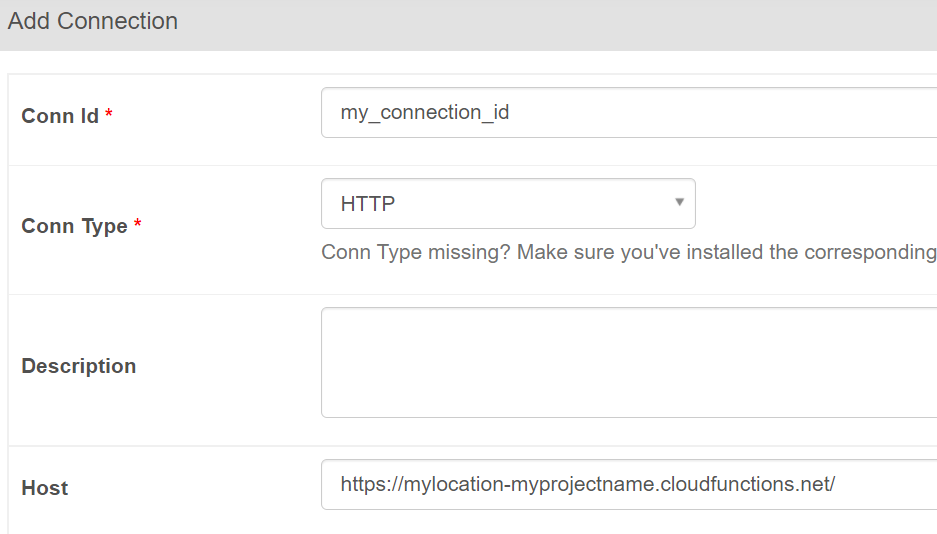For a requirement I want to call/invoke a cloud function from inside a cloud composer pipeline but I cant find much info on it, I tried using SimpleHTTP airflow operator but I get this error:
[2021-09-10 10:35:46,649] {taskinstance.py:1503} ERROR - Task failed with exception
Traceback (most recent call last):
File "/opt/python3.8/lib/python3.8/site-packages/airflow/models/taskinstance.py", line 1158, in
_run_raw_task
self._prepare_and_execute_task_with_callbacks(context, task)
File "/opt/python3.8/lib/python3.8/site-packages/airflow/models/taskinstance.py", line 1333, in
_prepare_and_execute_task_with_callbacks
result = self._execute_task(context, task_copy)
File "/opt/python3.8/lib/python3.8/site-packages/airflow/models/taskinstance.py", line 1363, in
_execute_task
result = task_copy.execute(context=context)
File "/home/airflow/gcs/dags/to_gcf.py", line 51, in execute
if not self.response_check(response):
File "/home/airflow/gcs/dags/to_gcf.py", line 83, in <lambda>
response_check=lambda response: False if len(response.json()) == 0 else True,
File "/opt/python3.8/lib/python3.8/site-packages/requests/models.py", line 900, in json
return complexjson.loads(self.text, **kwargs)
File "/opt/python3.8/lib/python3.8/json/__init__.py", line 357, in loads
return _default_decoder.decode(s)
File "/opt/python3.8/lib/python3.8/json/decoder.py", line 337, in decode
obj, end = self.raw_decode(s, idx=_w(s, 0).end())
File "/opt/python3.8/lib/python3.8/json/decoder.py", line 355, in raw_decode
raise JSONDecodeError("Expecting value", s, err.value) from None
Thanks in advance!!

